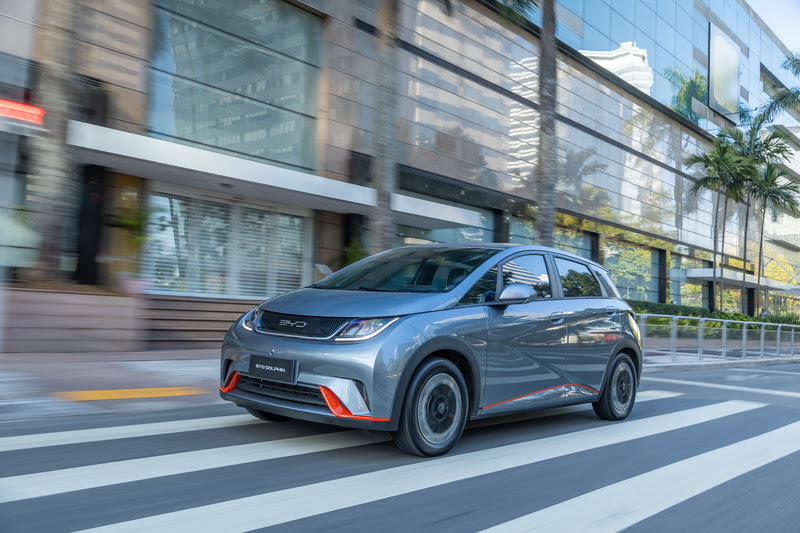As the world accelerates towards a greener future, the debate between electric vehicles (EVs), hybrids, and traditional gas-powered cars intensifies. In 2023, with record-breaking sales of electric cars and increasing environmental concerns, understanding the cost and environmental impact of these vehicle types is crucial for prospective buyers. According to Bloomberg Green, global EV sales are projected to reach nearly 14 million units this year, highlighting a significant shift in consumer behavior. In this article, we will delve into the cost differences, environmental impacts, and practical considerations of EVs, hybrids, and gas vehicles to help you make an informed decision.
Cost Analysis: EVs, Hybrids, and Gas Cars
Initial Purchase Price and Incentives
- Electric Vehicles (EVs): While EVs often have higher initial purchase prices compared to gas cars, they benefit from various government incentives and tax credits. For instance, the U.S. offers up to $7,500 in federal tax credits for qualifying electric vehicles. Brands like Tesla and Rivian continue to innovate, driving costs down as battery technology advances.
-
Hybrids: Hybrid vehicles, such as the Toyota Prius, typically have a moderate initial cost. They benefit from some incentives, though generally less than full EVs. The balance of electric and gas power often appeals to those seeking improved fuel efficiency without fully committing to electric.
-
Gas Cars: Traditionally, gas vehicles have been the most affordable option upfront. However, with rising fuel prices globally, the long-term cost savings of EVs and hybrids become more attractive.
Operating Costs
-
EVs: Thanks to lower electricity costs compared to gasoline and reduced maintenance needs—no oil changes or complex engine repairs—EVs offer substantial savings over their lifespan. According to InsideEVs, EV owners can save around $1,000 annually on fuel alone.
-
Hybrids: Hybrids offer better fuel efficiency than gas cars, reducing operating costs. However, they still require traditional maintenance services.
-
Gas Cars: While initially cheaper, the operating costs of gas cars are significantly higher due to fluctuating fuel prices and regular maintenance needs. This makes them less economical in the long run.
Environmental Impact: EVs, Hybrids, and Gas Cars
Emissions and Energy Use
-
EVs: EVs produce zero tailpipe emissions, making them the most environmentally friendly option. Their environmental impact largely depends on the electricity source. CleanTechnica reports that as renewable energy use increases, the carbon footprint of EVs continues to shrink.
-
Hybrids: Hybrids produce emissions, though less than traditional gas cars, due to their ability to run on electric power for short distances. They serve as a transitional technology, reducing emissions while offering convenience.
-
Gas Cars: Gas vehicles are the largest contributors to automotive emissions. According to the IEA, transportation accounts for nearly 24% of global CO2 emissions, with gas cars being a significant part of the problem.
Battery Production and Recycling
- EVs: Battery production for EVs does have an environmental cost, but advancements in recycling technologies are mitigating these impacts. Companies like BYD and Volkswagen are leading efforts in sustainable battery production and recycling.
Practical Considerations: How to Choose the Right Vehicle
Charging Infrastructure and Accessibility
-
EVs: Charging infrastructure is expanding rapidly, with over 100,000 public charging stations in the U.S. alone, according to Electrek. Most EV owners charge at home overnight, adding convenience.
-
Hybrids and Gas Cars: Hybrids offer flexibility, with no need for charging infrastructure, while gas cars rely on ubiquitous gas stations for fuel.
Range and Performance
-
EVs: Modern EVs offer impressive ranges, with models like the Lucid Air boasting over 500 miles on a single charge. Performance is another highlight, with instant torque providing a thrilling driving experience.
-
Hybrids: Hybrids offer moderate electric range, often limited to 20-50 miles, with the gas engine providing extended range capabilities.
-
Gas Cars: Gas vehicles offer familiarity and convenience, with extensive refueling infrastructure supporting long-distance travel.
Where to Buy and What to Compare
- Dealerships and Online Platforms: EVs, hybrids, and gas cars are available through traditional dealerships and online platforms like Tesla’s direct sales model. Compare features, warranties, and after-sales service to find the best fit for your needs.
Conclusion: Making an Informed Decision
As we navigate the automotive landscape in 2023, choosing between EVs, hybrids, and gas cars involves weighing cost, environmental impact, and personal priorities. EVs lead the pack in sustainability, offering long-term savings and reduced emissions. Hybrids serve as a practical compromise for those not ready to go fully electric, while traditional gas cars, despite their declining popularity, remain an option for some.
Ultimately, the choice will depend on your lifestyle and values. As technology advances and infrastructure improves, the gap between these options will continue to widen. Are you ready to join the electric revolution, or will you opt for a hybrid or gas vehicle? Share your thoughts and experiences in the comments below. Looking ahead, the future of transportation is undoubtedly electric, with promises of cleaner air and a more sustainable planet.

